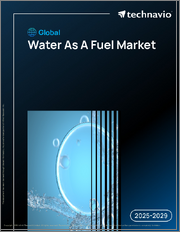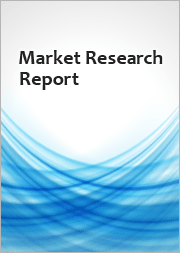
|
시장보고서
상품코드
1734867
지속 가능한 컨설팅 시장 예측(-2032년) : 서비스 유형, 조직 규모, 판매 채널, 최종 사용자, 지역별 분석Sustainable Consulting Market Forecasts to 2032 - Global Analysis By Service Type, Organization Size, Sales Channel, End User and By Geography |
||||||
Stratistics MRC에 따르면 세계의 지속 가능한 컨설팅 시장은 2025년 169억 달러를 차지하고 예측 기간 동안 CAGR 27.3%로 성장해 2032년에는 915억 달러에 이를 전망입니다.
지속 가능한 컨설팅은 환경, 사회 및 경제의 장기적인 지속가능성을 달성하기 위한 전략을 기업, 조직 및 정부에 조언하는 것을 포함합니다. 재생 가능 에너지, 폐기물 관리, 지속 가능한 공급망, 기업의 사회적 책임 등의 주제에 대해 지도를 실시합니다.
국가 통계국(ONS)이 2022년 3월부터 4월까지 실시한 '비즈니스 인사이트와 상황 조사'에 따르면 대기업의 약 23%가 기후 변화 전략을 책정하고 17%가 온실가스 배출량 목표를 설정했습니다.
지속가능성 보고 및 정보 공개에 대한 수요 증가
시장에서의 지속가능성 보고 및 공개에 대한 수요 증가는 규제에 의한 압력, 투자자의 기대, 환경 및 사회 문제에 대한 소비자의 의식 증가에 의해 초래되고 있습니다. 또한 윤리적인 사업 운영과 장기적인 리스크 관리에 대한 이해관계자의 요구에 따라 기업은 확고한 지속가능성 보고와 전략적 환경성능 개선을 위해 전문가의 컨설팅 서비스를 요구하게 되었습니다.
지속가능성 컨설팅 서비스의 복잡성 인식
지속가능성 컨설팅 서비스가 복잡하다는 인식은 기업, 특히 중소기업이 전문가의 지원을 요구하는 것을 망설이고, 지속가능성 컨설팅 시장에 부정적인 영향을 미칠 수 있습니다. 이러한 인식은 망설임이나 부작위로 이어져, 시장의 성장을 둔화시키고, 효과적인 지속가능성 전략의 채용을 제한합니다.
기업의 지속가능성에 대한 헌신과 넷 제로 목표
기업의 지속가능성 헌신과 넷 제로 목표는 세계의 기후 변화 협정, 규제의 의무화, 책임 있는 비즈니스 관행을 요구하는 이해관계자의 압력에 힘입어 시장의 주요 촉진요인이 되고 있습니다. 투자자들은 ESG 성과를 점점 더 우선시하고 있으며, 기업에 과학적 근거를 기반으로 하는 목표와 투명성이 높은 탈탄소 전략의 채용을 촉진하고 있습니다.
사내 지속가능성 팀 및 대체 솔루션과의 경쟁
회사의 지속가능성 팀과 대체 솔루션과의 경쟁은 시장에 큰 어려움을 갖고 있습니다. 이 시프트는 컨설팅 회사가 전문 지식, 혁신 및 부가가치 서비스에 의한 차별화를 촉구하고, 그렇지 않으면 더 사용하기 쉽고 저비용으로 보이는 사내 및 기술 기반 대체 수단에 시장 점유율을 빼앗길 위험이 있습니다.
COVID-19의 영향
COVID-19의 유행은 시장에 다양한 영향을 미쳤습니다. 처음에는 많은 조직이 경제의 불확실성과 우선 순위 변화로 인해 지속가능성에 대한 일시 중단을 겪었습니다. ESG 전략이 다시 주목 받고 공급망의 강인성, 기후 변화 리스크, 이해관계자 참여 등 분야의 컨설팅 서비스에 대한 수요가 높아졌습니다.
예측기간 동안 지속가능 금융 및 투자 분야가 최대가 될 전망
지속 가능한 금융 및 투자 분야는 예측 기간 동안 가장 큰 시장 점유율을 차지할 것으로 예측됩니다. 이 동향은 ESG 보고, 리스크 평가, 녹색 금융 전략을 지원하는 컨설팅 서비스에 대한 수요를 추진하고 있습니다.
건설 및 부동산 분야는 예측 기간 중 가장 높은 CAGR이 예상된다.
예측기간 중 건설 및 부동산 분야가 가장 높은 성장률을 보일 것으로 예측됩니다. 규제압력 증가, 그린빌딩인증(LEED, BREEAM 등), 기후 변화에 강한 자산에 대한 투자자 수요가 기업이 전문가에 의한 컨설팅을 요구하는 원동력이 되고 있습니다. 지속 가능한 컨설턴트는 에너지 효율적인 건물 설계, 이산화탄소 배출 감소, ESG 기준 준수를 달성하는 데 도움을 줍니다. 도시화가 가속화됨에 따라 지속 가능한 개발의 필요성은이 분야의 전문 컨설팅 서비스에 대한 수요를 더욱 높이고 있습니다.
최대 점유율을 차지하는 지역:
예측 기간 동안 아시아태평양은 규제 체계와 정부의 기후 변화에 대한 노력 증가로 최대 시장 점유율을 차지할 것으로 예측됩니다. 중국, 일본, 인도, 호주 등의 국가들은 야심적인 넷 제로 목표와 ESG의 의무화를 설정하여 기업에 지속 가능한 관행의 채용을 촉구하고 있습니다. 급속한 도시화와 산업의 성장도 환경 및 사회 리스크 관리 수요를 높이고 있습니다. 그 결과, 컨설팅 회사는 ESG 통합, 지속가능성 보고, 녹색 전환 전략으로 조직을 지원할 기회가 다양한 산업에서 증가하고 있습니다.
CAGR이 가장 높은 지역:
예측 기간 동안 북미가 가장 높은 CAGR을 나타낼 것으로 예측됩니다. 이는 규제압력 증가, 환경친화적인 관행에 대한 소비자 수요 증가, 기업의 사회적 책임(CSR)에 대한 관심 증가가 배경입니다. 기업은 환경, 사회 및 거버넌스(ESG) 기준을 충족하고 운영 비용을 줄이고 브랜드 이미지를 개선하기 위해 지속 가능한 관행을 채택하고 있습니다. 기후 변화와 자원보호에 대한 의식이 높아지면 그린 솔루션의 기술적 진보와 함께 이 지역의 모든 산업에서 지속가능성 컨설팅 서비스에 대한 수요가 더욱 높아지고 있습니다.
무료 주문을 받아서 만드는 서비스:
이 보고서를 구독하는 고객은 다음 무료 맞춤설정 옵션 중 하나를 사용할 수 있습니다.
- 기업 프로파일
- 추가 시장 기업의 종합적 프로파일링(3개사까지)
- 주요 기업의 SWOT 분석(3개사까지)
- 지역 세분화
- 고객의 관심에 응한 주요국 시장 추계, 예측, CAGR(주: 타당성 확인에 따름)
- 경쟁 벤치마킹
- 제품 포트폴리오, 지리적 존재, 전략적 제휴에 기반한 주요 기업 벤치마킹
목차
제1장 주요 요약
제2장 서문
- 개요
- 이해관계자
- 조사 범위
- 조사 방법
- 데이터 마이닝
- 데이터 분석
- 데이터 검증
- 조사 접근
- 조사 자료
- 1차 조사 자료
- 2차 조사 정보원
- 전제조건
제3장 시장 동향 분석
- 성장 촉진요인
- 억제요인
- 기회
- 위협
- 최종 사용자 분석
- 신흥 시장
- COVID-19의 영향
제4장 Porter's Five Forces 분석
- 공급기업의 협상력
- 구매자의 협상력
- 대체품의 위협
- 신규 참가업체의 위협
- 경쟁 기업간 경쟁 관계
제5장 세계의 지속 가능한 컨설팅 시장 : 서비스 유형별
- 환경영향 평가(EIA)
- 지속가능경영 전략과 보고
- 탄소발자국 및 탈탄소화
- 에너지 및 자원 효율
- 공급망의 지속가능성
- 컴플라이언스 및 리스크 관리
- 지속 가능한 금융 및 투자
- 기타 서비스 유형
제6장 세계의 지속 가능한 컨설팅 시장 : 조직 규모별
- 대기업
- 중소기업
- 스타트업 및 소셜 엔터프라이즈
제7장 세계의 지속 가능한 컨설팅 시장 : 판매 채널별
- 직접 채널
- 디지털/온라인 채널
- 파트너/채널 판매
- 정부 및 기관 입찰
제8장 세계의 지속 가능한 컨설팅 시장 : 최종 사용자별
- 에너지 및유틸리티
- 제조업 및 중공업
- 건설 및 부동산
- 소매 및 소비재
- 헬스케어 및 의약품
- 기타 최종 사용자
제9장 세계의 지속 가능한 컨설팅 시장 : 지역별
- 북미
- 미국
- 캐나다
- 멕시코
- 유럽
- 독일
- 영국
- 이탈리아
- 프랑스
- 스페인
- 기타 유럽
- 아시아태평양
- 일본
- 중국
- 인도
- 호주
- 뉴질랜드
- 한국
- 기타 아시아태평양
- 남미
- 아르헨티나
- 브라질
- 칠레
- 기타 남미
- 중동 및 아프리카
- 사우디아라비아
- 아랍에미리트(UAE)
- 카타르
- 남아프리카
- 기타 중동 및 아프리카
제10장 주요 발전
- 계약, 파트너십, 협업, 합작투자(JV)
- 인수합병
- 신제품 발매
- 사업 확대
- 기타 주요 전략
제11장 기업 프로파일링
- EY
- Accenture
- Bain & Company
- Boston Consulting Group(BCG)
- Deloitte
- KPMG
- McKinsey & Company
- FTI Consulting
- AT Kearney
- Arthur D. Little
- Roland Berger Strategy Consultants
- Jacobs
- Strategy&
- PwC India
- Corpseed ITES Pvt. Ltd.
- Grant Thornton India
- SG Analytics
- EcoEngineers
- PwC
According to Stratistics MRC, the Global Sustainable Consulting Market is accounted for $16.9 billion in 2025 and is expected to reach $91.5 billion by 2032 growing at a CAGR of 27.3% during the forecast period. Sustainable consulting involves advising businesses, organizations, and governments on strategies to achieve long-term environmental, social, and economic sustainability. Consultants in this field focus on helping clients reduce their environmental impact, improve resource efficiency, and adopt practices that promote social equity and economic viability. They provide guidance on topics like renewable energy, waste management, sustainable supply chains, and corporate social responsibility. Sustainable consulting aims to align business goals with environmental stewardship, ensuring that organizations can thrive while contributing positively to society and the planet's future well-being.
According to the Office for National Statistics (ONS) Business Insights and Conditions Survey conducted between March and April 2022, approximately 23% of large businesses reported having a climate strategy, while 17% had established greenhouse gas emissions targets.
Market Dynamics:
Driver:
Rising demand for sustainability reporting and disclosure
The rising demand for sustainability reporting and disclosure in the market is driven by increasing regulatory pressures, investor expectations, and consumer awareness of environmental and social issues. Companies face growing accountability to demonstrate transparent ESG (Environmental, Social, Governance) practices, meet climate targets, and align with global frameworks like the GRI and TCFD. Additionally, stakeholder demand for ethical operations and long-term risk management compels organizations to seek expert consulting services for robust sustainability reporting and strategic environmental performance improvement.
Restraint:
Perceived complexity of sustainability consulting services
The perceived complexity of sustainability consulting services can negatively impact the sustainable consulting market by deterring businesses, especially small and medium enterprises, from seeking professional support. Many organizations view sustainability as a complicated, resource-intensive process involving technical jargon, regulatory uncertainty, and unclear ROI. This perception can lead to hesitation or inaction, slowing market growth and limiting the adoption of effective sustainability strategies. As a result, consultants may face challenges in client engagement, education, and conveying the tangible value of their services.
Opportunity:
Corporate sustainability commitments and net-zero target
Corporate sustainability commitments and net-zero targets are key drivers in the market, fueled by global climate agreements, regulatory mandates, and stakeholder pressure for responsible business practices. Companies are setting ambitious environmental goals to reduce carbon footprints, enhance brand reputation, and gain competitive advantage. Investors increasingly prioritize ESG performance, pushing firms to adopt science-based targets and transparent decarbonization strategies. This shift creates strong demand for consulting expertise to develop, implement, and monitor effective pathways toward sustainability and net-zero emissions.
Threat:
Competition from in-house sustainability teams and alternative solutions
Competition from in-house sustainability teams and alternative solutions poses a significant challenge to the market. As organizations increasingly build internal expertise, they may reduce reliance on external consultants to manage ESG initiatives. Additionally, digital platforms and automated tools offering cost-effective sustainability solutions can further diminish demand for traditional consulting services. This shift pressures consulting firms to differentiate through specialized knowledge, innovation, and value-added services, or risk losing market share to more accessible and perceived lower-cost internal or tech-based alternatives.
Covid-19 Impact
The COVID-19 pandemic had a mixed impact on the market. Initially, many organizations paused sustainability initiatives due to economic uncertainty and shifting priorities. However, the crisis ultimately heightened awareness of systemic risks and the importance of resilient, sustainable business models. This led to a renewed focus on ESG strategies, driving demand for consulting services in areas like supply chain resilience, climate risk, and stakeholder engagement. Post-pandemic recovery efforts further accelerated sustainability commitments, positioning consulting firms as key strategic partners.
The sustainable finance & invxesting segment is expected to be the largest during the forecast period
The sustainable finance & investing segment is expected to account for the largest market share during the forecast period. Financial institutions and asset managers seek expert guidance to integrate sustainability into portfolios, comply with evolving regulations, and align with global frameworks like the EU Taxonomy and SFDR. This trend fuels demand for consulting services that support ESG reporting, risk assessment, and green finance strategies. As capital shifts toward responsible investments, consultants play a crucial role in helping clients meet investor expectations and attract sustainable funding.
The construction & real estate segment is expected to have the highest CAGR during the forecast period
Over the forecast period, the construction & real estate segment is predicted to witness the highest growth rate. Growing regulatory pressures, green building certifications (like LEED and BREEAM), and investor demand for climate-resilient assets are driving companies to seek expert consulting. Sustainable consultants assist in designing energy-efficient buildings, reducing carbon footprints, and achieving compliance with ESG standards. As urbanization accelerates, the need for sustainable development further amplifies demand for specialized consulting services in this sector.
Region with largest share:
During the forecast period, the Asia Pacific region is expected to hold the largest market share due to increasing regulatory frameworks, government climate commitments. Countries like China, Japan, India, and Australia are setting ambitious net-zero targets and ESG mandates, pushing businesses to adopt sustainable practices. Rapid urbanization and industrial growth also heighten the demand for environmental and social risk management. As a result, consulting firms are seeing rising opportunities to support organizations with ESG integration, sustainability reporting, and green transition strategies across diverse industries.
Region with highest CAGR:
Over the forecast period, the North America region is anticipated to exhibit the highest CAGR driven by increasing regulatory pressures, growing consumer demand for eco-friendly practices, and a heightened focus on corporate social responsibility (CSR). Companies are adopting sustainable practices to meet environmental, social, and governance (ESG) standards, reduce operational costs, and improve brand image. The rising awareness of climate change and resource conservation, along with technological advancements in green solutions, further fuels the demand for sustainability consulting services across industries in the region.
Key players in the market
Some of the key players profiled in the Sustainable Consulting Market include EY, Accenture, Bain & Company, Boston Consulting Group (BCG), Deloitte, KPMG, McKinsey & Company, FTI Consulting, A.T. Kearney, Arthur D. Little, Roland Berger Strategy Consultants, Jacobs, Strategy&, PwC India, Corpseed ITES Pvt. Ltd., Grant Thornton India, SG Analytics and EcoEngineers.
Key Developments:
In May 2024, Boston Consulting Group (BCG) announced that it has signed an agreement for the purchase of sustainable aviation fuel certificates (SAFc) with TwelveTM, the carbon transformation company. The agreement will run from 2026 until 2029, and is expected to deliver an emissions reduction of more than 4,000 metric tons of CO2 by the end of the period. The agreement is part of BCG's drive to achieve net zero climate impact by 2030.
In January 2024, Sports brand PUMA India and Accenture have teamed up to further strengthen PUMA's supply chain and distribution network in the country. By leveraging Accenture's expertise in digital twin technology, the collaboration aims to drive faster fulfillment and reduce operational costs for the company.
Service Types Covered:
- Environmental Impact Assessment (EIA)
- Sustainability Strategy & Reporting
- Carbon Footprinting & Decarbonization
- Energy & Resource Efficiency
- Supply Chain Sustainability
- Compliance & Risk Management
- Sustainable Finance & Investing
- Other Service Types
Organization Sizes Covered:
- Large Enterprises
- Small and Medium Enterprises (SMEs)
- Startups & Social Enterprises
Sales Channels Covered:
- Direct Channel
- Digital/Online Channel
- Partner/Channel Sales
- Government & Institutional Tenders
End Users Covered:
- Energy & Utilities
- Manufacturing & Heavy Industry
- Construction & Real Estate
- Retail & Consumer Goods
- Healthcare & Pharmaceuticals
- Other End Users
Regions Covered:
- North America
- US
- Canada
- Mexico
- Europe
- Germany
- UK
- Italy
- France
- Spain
- Rest of Europe
- Asia Pacific
- Japan
- China
- India
- Australia
- New Zealand
- South Korea
- Rest of Asia Pacific
- South America
- Argentina
- Brazil
- Chile
- Rest of South America
- Middle East & Africa
- Saudi Arabia
- UAE
- Qatar
- South Africa
- Rest of Middle East & Africa
What our report offers:
- Market share assessments for the regional and country-level segments
- Strategic recommendations for the new entrants
- Covers Market data for the years 2024, 2025, 2026, 2028, and 2032
- Market Trends (Drivers, Constraints, Opportunities, Threats, Challenges, Investment Opportunities, and recommendations)
- Strategic recommendations in key business segments based on the market estimations
- Competitive landscaping mapping the key common trends
- Company profiling with detailed strategies, financials, and recent developments
- Supply chain trends mapping the latest technological advancements
Free Customization Offerings:
All the customers of this report will be entitled to receive one of the following free customization options:
- Company Profiling
- Comprehensive profiling of additional market players (up to 3)
- SWOT Analysis of key players (up to 3)
- Regional Segmentation
- Market estimations, Forecasts and CAGR of any prominent country as per the client's interest (Note: Depends on feasibility check)
- Competitive Benchmarking
- Benchmarking of key players based on product portfolio, geographical presence, and strategic alliances
Table of Contents
1 Executive Summary
2 Preface
- 2.1 Abstract
- 2.2 Stake Holders
- 2.3 Research Scope
- 2.4 Research Methodology
- 2.4.1 Data Mining
- 2.4.2 Data Analysis
- 2.4.3 Data Validation
- 2.4.4 Research Approach
- 2.5 Research Sources
- 2.5.1 Primary Research Sources
- 2.5.2 Secondary Research Sources
- 2.5.3 Assumptions
3 Market Trend Analysis
- 3.1 Introduction
- 3.2 Drivers
- 3.3 Restraints
- 3.4 Opportunities
- 3.5 Threats
- 3.6 End User Analysis
- 3.7 Emerging Markets
- 3.8 Impact of Covid-19
4 Porters Five Force Analysis
- 4.1 Bargaining power of suppliers
- 4.2 Bargaining power of buyers
- 4.3 Threat of substitutes
- 4.4 Threat of new entrants
- 4.5 Competitive rivalry
5 Global Sustainable Consulting Market, By Service Type
- 5.1 Introduction
- 5.2 Environmental Impact Assessment (EIA)
- 5.3 Sustainability Strategy & Reporting
- 5.4 Carbon Footprinting & Decarbonization
- 5.5 Energy & Resource Efficiency
- 5.6 Supply Chain Sustainability
- 5.7 Compliance & Risk Management
- 5.8 Sustainable Finance & Investing
- 5.9 Other Service Types
6 Global Sustainable Consulting Market, By Organization Size
- 6.1 Introduction
- 6.2 Large Enterprises
- 6.3 Small and Medium Enterprises (SMEs)
- 6.4 Startups & Social Enterprises
7 Global Sustainable Consulting Market, By Sales Channel
- 7.1 Introduction
- 7.2 Direct Channel
- 7.3 Digital/Online Channel
- 7.4 Partner/Channel Sales
- 7.5 Government & Institutional Tenders
8 Global Sustainable Consulting Market, By End User
- 8.1 Introduction
- 8.2 Energy & Utilities
- 8.3 Manufacturing & Heavy Industry
- 8.4 Construction & Real Estate
- 8.5 Retail & Consumer Goods
- 8.6 Healthcare & Pharmaceuticals
- 8.7 Other End Users
9 Global Sustainable Consulting Market, By Geography
- 9.1 Introduction
- 9.2 North America
- 9.2.1 US
- 9.2.2 Canada
- 9.2.3 Mexico
- 9.3 Europe
- 9.3.1 Germany
- 9.3.2 UK
- 9.3.3 Italy
- 9.3.4 France
- 9.3.5 Spain
- 9.3.6 Rest of Europe
- 9.4 Asia Pacific
- 9.4.1 Japan
- 9.4.2 China
- 9.4.3 India
- 9.4.4 Australia
- 9.4.5 New Zealand
- 9.4.6 South Korea
- 9.4.7 Rest of Asia Pacific
- 9.5 South America
- 9.5.1 Argentina
- 9.5.2 Brazil
- 9.5.3 Chile
- 9.5.4 Rest of South America
- 9.6 Middle East & Africa
- 9.6.1 Saudi Arabia
- 9.6.2 UAE
- 9.6.3 Qatar
- 9.6.4 South Africa
- 9.6.5 Rest of Middle East & Africa
10 Key Developments
- 10.1 Agreements, Partnerships, Collaborations and Joint Ventures
- 10.2 Acquisitions & Mergers
- 10.3 New Product Launch
- 10.4 Expansions
- 10.5 Other Key Strategies
11 Company Profiling
- 11.1 EY
- 11.2 Accenture
- 11.3 Bain & Company
- 11.4 Boston Consulting Group (BCG)
- 11.5 Deloitte
- 11.6 KPMG
- 11.7 McKinsey & Company
- 11.8 FTI Consulting
- 11.9 A.T. Kearney
- 11.10 Arthur D. Little
- 11.11 Roland Berger Strategy Consultants
- 11.12 Jacobs
- 11.11 Strategy&
- 11.14 PwC India
- 11.15 Corpseed ITES Pvt. Ltd.
- 11.16 Grant Thornton India
- 11.17 SG Analytics
- 11.18 EcoEngineers
- 11.19 PwC



















